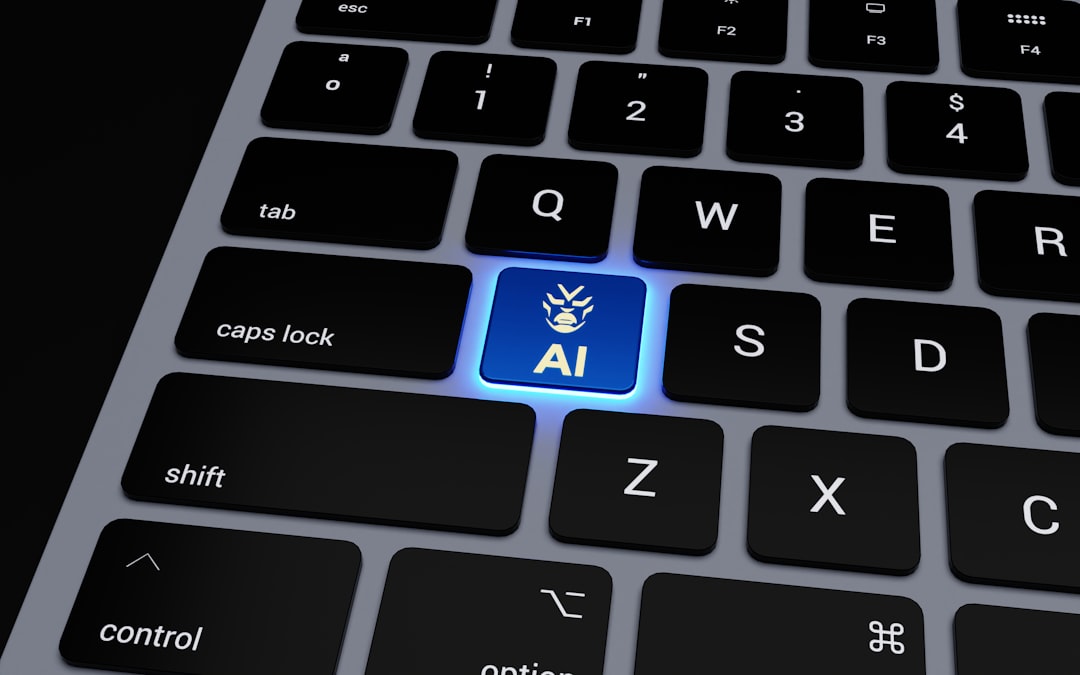Customer Relationship Management (CRM) is a crucial aspect of any business, as it involves managing interactions with current and potential customers. With the advancement of technology, CRM has evolved to incorporate Artificial Intelligence (AI) to enhance customer interactions and improve business processes. AI in CRM involves the use of algorithms and machine learning techniques to analyze customer data, predict customer behavior, and automate certain tasks. One of the key areas of AI in CRM is the use of Multi-Task Learning (MTL) and Transfer Learning (TL) to improve the efficiency and effectiveness of CRM systems. MTL allows AI models to learn multiple tasks simultaneously, while TL enables the transfer of knowledge from one task to another. In this article, we will explore the evolution of MTL and TL in CRM AI, the advantages they offer, and how SMS-iT CRM has implemented these techniques to enhance their CRM system.
Key Takeaways
- CRM AI utilizes artificial intelligence to enhance customer relationship management
- Multi-task learning in CRM AI has evolved to improve efficiency and accuracy in handling multiple tasks simultaneously
- Transfer learning in CRM AI offers the advantage of leveraging knowledge from one task to improve performance in another task
- SMS-iT CRM’s approach to multi-task learning focuses on optimizing resources and improving overall performance
- SMS-iT CRM’s approach to transfer learning aims to enhance model performance and reduce the need for extensive training data
- Multi-task and transfer learning have a significant impact on CRM AI by improving predictive accuracy and reducing training time
- The future of CRM AI presents opportunities for personalized customer experiences but also challenges in data privacy and ethical use of AI
The Evolution of Multi-Task Learning in CRM AI
Multi-Task Learning (MTL) in CRM AI has evolved significantly over the years. Initially, AI models were trained to perform a single task, such as predicting customer churn or recommending products. However, with the increasing complexity of customer interactions and the abundance of data available, there was a need to develop AI models that could handle multiple tasks simultaneously. This led to the development of MTL algorithms that could learn from multiple sources of data and perform various tasks, such as sentiment analysis, customer segmentation, and personalized recommendations. MTL in CRM AI has revolutionized the way businesses interact with their customers, as it allows for a more holistic understanding of customer behavior and preferences. By learning from multiple tasks, AI models can provide more accurate predictions and recommendations, leading to improved customer satisfaction and business outcomes.
The evolution of MTL in CRM AI has also been driven by advancements in deep learning techniques and the availability of large-scale datasets. Deep learning models, such as neural networks, have the capability to learn complex patterns from data, making them well-suited for MTL tasks. Additionally, the availability of large-scale datasets has enabled the training of more robust MTL models that can generalize well to new tasks and domains. As a result, MTL in CRM AI has become an essential tool for businesses looking to gain a competitive edge in understanding and serving their customers.
The Advantages of Transfer Learning in CRM AI
Transfer Learning (TL) is another important technique that has gained traction in CRM AI. TL involves transferring knowledge from one task to another, allowing AI models to leverage pre-trained representations and adapt them to new tasks. In the context of CRM AI, TL offers several advantages, including improved model performance, reduced training time, and the ability to learn from limited data. By leveraging knowledge from related tasks, TL enables AI models to generalize better to new tasks and domains, leading to more accurate predictions and recommendations.
Furthermore, TL in CRM AI allows businesses to make the most of their data by reusing representations learned from previous tasks. This is particularly beneficial for businesses with limited labeled data, as TL enables AI models to learn from larger, more diverse datasets and transfer that knowledge to new tasks. As a result, businesses can build more robust and accurate CRM systems that can adapt to changing customer needs and preferences. Additionally, TL can help businesses save time and resources by reducing the need for extensive retraining of models for new tasks. Overall, TL in CRM AI offers significant advantages for businesses looking to enhance their customer interactions and drive better business outcomes.
SMS-iT CRM’s Approach to Multi-Task Learning
SMS-iT CRM has embraced Multi-Task Learning (MTL) as a core component of its AI strategy. By leveraging MTL techniques, SMS-iT CRM’s AI models are able to simultaneously learn from multiple tasks, such as customer sentiment analysis, product recommendations, and churn prediction. This approach allows SMS-iT CRM to gain a more comprehensive understanding of customer behavior and preferences, leading to more personalized and effective customer interactions. Additionally, MTL enables SMS-iT CRM’s AI models to generalize better to new tasks and domains, making them more adaptable to evolving business needs.
SMS-iT CRM’s approach to MTL is underpinned by state-of-the-art deep learning techniques and large-scale datasets. By utilizing deep learning models, such as neural networks, SMS-iT CRM’s AI systems can learn complex patterns from data and make accurate predictions across multiple tasks. Furthermore, the availability of large-scale datasets allows SMS-iT CRM to train more robust MTL models that can capture diverse aspects of customer interactions. As a result, SMS-iT CRM is able to deliver a CRM system that is not only efficient but also highly effective in meeting the needs of its clients.
SMS-iT CRM’s Approach to Transfer Learning
In addition to MTL, SMS-iT CRM has also integrated Transfer Learning (TL) into its AI strategy. TL allows SMS-iT CRM’s AI models to leverage pre-trained representations and adapt them to new tasks, leading to improved model performance and reduced training time. By transferring knowledge from related tasks, SMS-iT CRM’s AI systems can generalize better to new domains and make more accurate predictions for its clients. This approach enables SMS-iT CRM to build more robust and adaptable CRM systems that can meet the evolving needs of its clients.
SMS-iT CRM’s approach to TL is supported by its extensive experience in handling diverse customer datasets. By leveraging knowledge from related tasks, such as customer segmentation and sentiment analysis, SMS-iT CRM’s AI models can learn from larger, more diverse datasets and transfer that knowledge to new tasks. This allows SMS-iT CRM to build more accurate and effective CRM systems that can cater to the specific needs of its clients. Overall, SMS-iT CRM’s approach to TL reflects its commitment to delivering cutting-edge AI solutions that drive better customer interactions and business outcomes.
The Impact of Multi-Task and Transfer Learning on CRM AI

The impact of Multi-Task Learning (MTL) and Transfer Learning (TL) on CRM AI cannot be overstated. These techniques have revolutionized the way businesses interact with their customers by enabling more accurate predictions, personalized recommendations, and improved customer satisfaction. By learning from multiple tasks simultaneously, MTL allows AI models to gain a more comprehensive understanding of customer behavior and preferences, leading to more effective customer interactions. Additionally, TL enables AI models to leverage pre-trained representations and adapt them to new tasks, resulting in improved model performance and reduced training time.
Furthermore, MTL and TL have enabled businesses to make the most of their data by reusing representations learned from previous tasks and transferring knowledge from related domains. This has led to more robust and adaptable CRM systems that can cater to the evolving needs of businesses and their customers. The impact of MTL and TL on CRM AI is evident in the improved business outcomes and customer satisfaction achieved by businesses that have embraced these techniques. Overall, MTL and TL have significantly enhanced the capabilities of CRM AI systems and are poised to drive further innovation in customer relationship management.
The Future of CRM AI: Opportunities and Challenges
Looking ahead, the future of CRM AI presents numerous opportunities and challenges for businesses. On one hand, the continued advancement of MTL and TL techniques offers businesses the opportunity to gain deeper insights into customer behavior and preferences, leading to more personalized and effective customer interactions. Additionally, the integration of MTL and TL into CRM AI systems presents opportunities for businesses to build more robust and adaptable systems that can meet the evolving needs of their customers.
However, there are also challenges that businesses must address as they embrace these advanced techniques. One such challenge is the need for large-scale datasets that are diverse and representative of customer interactions. Additionally, businesses must invest in the necessary infrastructure and expertise to effectively implement MTL and TL techniques into their CRM systems. Furthermore, businesses must ensure that they adhere to ethical considerations when leveraging AI in their CRM systems, such as ensuring transparency and fairness in their algorithms.
In conclusion, the future of CRM AI holds great promise for businesses looking to enhance their customer interactions and drive better business outcomes. By embracing advanced techniques such as Multi-Task Learning and Transfer Learning, businesses can gain a deeper understanding of their customers’ needs and preferences while building more robust and adaptable CRM systems. While there are challenges that must be addressed, the opportunities presented by these advanced techniques are significant, paving the way for continued innovation in customer relationship management.
For more information on how SMS-iT CRM is revolutionizing customer relationship management, check out their blog post “Revolutionize Your Business with SMS-iT CRM Tools: The Ultimate Solution for Streamlined Customer Management” at https://blog.smsit.ai/2024/03/18/revolutionize-your-business-with-sms-it-crm-tools-the-ultimate-solution-for-streamlined-customer-management/. This article provides valuable insights into the cutting-edge multi-task learning and transfer learning approaches that SMS-iT CRM is using to shape the future of CRM AI.
FAQs
What is CRM AI?
CRM AI refers to the use of artificial intelligence technology within customer relationship management (CRM) systems. It involves using AI to analyze customer data, automate tasks, and provide insights to improve customer interactions and relationships.
What is multi-task learning in CRM AI?
Multi-task learning in CRM AI involves training a single AI model to perform multiple related tasks simultaneously. This approach allows the AI model to leverage shared knowledge across tasks, leading to improved performance and efficiency.
What is transfer learning in CRM AI?
Transfer learning in CRM AI involves reusing knowledge gained from solving one problem to help solve a related problem. This approach allows AI models to leverage pre-existing knowledge and adapt it to new tasks, leading to faster learning and improved performance.
How do multi-task learning and transfer learning benefit CRM AI?
Multi-task learning and transfer learning benefit CRM AI by improving the efficiency, performance, and adaptability of AI models. These approaches enable AI systems to leverage shared knowledge and pre-existing information, leading to better insights, automation, and customer relationship management.







